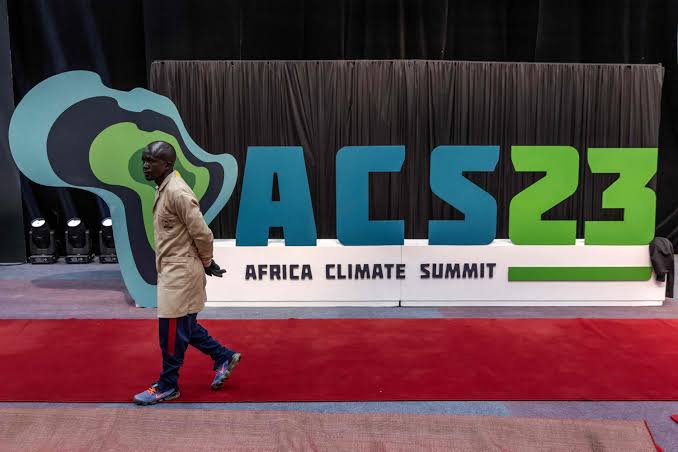Countdown to S/Africa Summit: CSOs Blast Forum for Promoting Climate Colonialism

By Abdullahi Lukman
African civil society organizations have expressed strong opposition to the Degrees Global Forum summit scheduled to hold in South Africa this week.
They accuse the forum of promoting climate colonialism and threatening the continent’s sovereignty and environmental future.
The forum, which aims to discuss climate action, is set to advocate for Solar Radiation Management (SRM), a geoengineering technology that critics argue could have catastrophic consequences for Africa’s ecosystems and communities.
SRM, which involves manipulating the Earth’s atmosphere to reduce global temperatures, has raised alarms due to its unpredictable and risky nature.
African civil society groups, including the Hands Off Mother Earth! (HOME) Alliance, have condemned the forum, describing SRM as a “neo-colonial political development.”
They argue that the promotion of such technologies seeks to make Africa a testing ground for unproven methods, further exploiting the continent’s resources while avoiding the responsibilities of the Global North in addressing the climate crisis.
“This agenda directly contradicts the African Union’s position on solar geoengineering,” the HOME Alliance stated.
“In 2023, African ministers clearly opposed SRM at the African Ministerial Conference on the Environment (AMCEN), and called for a global governance mechanism to prevent its use. Hosting this forum in South Africa undermines those efforts and disregards the concerns of African governments and communities.”
SRM has been widely criticized for its potential to disrupt rainfall patterns, alter ecosystems, and harm food security.
Critics contend that it is a dangerous distraction from real climate solutions, such as renewable energy, agroecology, and community-led adaptation.
They argue that the focus on technological fixes like SRM diverts attention from the urgent need to address the root causes of climate change and prioritize equity and justice.
Several African civil society leaders have spoken out against the forum’s agenda. Dr. Mfoniso Xael, Programmes Manager at the Health of Mother Earth Foundation, called the decision to host the forum in Africa “a direct affront to the position of AMCEN and African governments.”
Xael stressed that African nations, especially those with vulnerable indigenous populations, must reject any attempts to impose dangerous geoengineering technologies on the continent.
Kwami Kpondzo, Director of the Centre for Environmental Justice in Togo, echoed these sentiments, asserting that Africa should not be used as a “testing ground” for risky technologies.
“The continent deserves real solutions to the climate crisis, not speculative, unproven ideas that further exacerbate existing inequalities,” Kpondzo said.
Dean Bhekumuzi Bhebhe, Senior Advisor at Power Shift Africa, also condemned the forum’s focus on geoengineering, calling it a “techno-fantasy” that avoids real climate action.
“This forum is yet another attempt to divert attention from the real issues—like emissions reductions and the end of fossil fuel dependence—by promoting risky and untested technologies,” Bhebhe stated.
The forum is set to take place in Cape Town, South Africa, despite growing opposition from civil society groups and African leaders.
As part of their stance, African ministers have urged global governance bodies to take a precautionary approach to geoengineering and to ensure that any interventions respect the rights and sovereignty of local communities.
Amos Nkpeebo of the FIDEP Foundation in Ghana emphasized that African communities, particularly those most affected by climate change, are not asking for speculative solutions like SRM.
“We need tangible investments in sustainable food systems, clean water access, and resilient infrastructure, not geoengineering,” Nkpeebo said.
The growing backlash comes as the Degrees Global Forum aims to gather experts, academics, and policymakers to discuss SRM and other climate technologies.
However, African civil society remains firm in its opposition, calling for a focus on Indigenous knowledge, community-led adaptation, and climate justice.
As the forum approaches, civil society organizations are demanding that the Degrees Initiative respect Africa’s position on SRM and stop imposing technologies that could harm vulnerable communities.
They are also calling for Free, Prior, and Informed Consent from affected populations to ensure their rights and interests are protected in any future climate-related interventions.
This latest controversy highlights a growing divide between the Global South and North over climate solutions, with African civil society demanding that global actors prioritize equity, justice, and sustainablw development over risky technological fixes.
